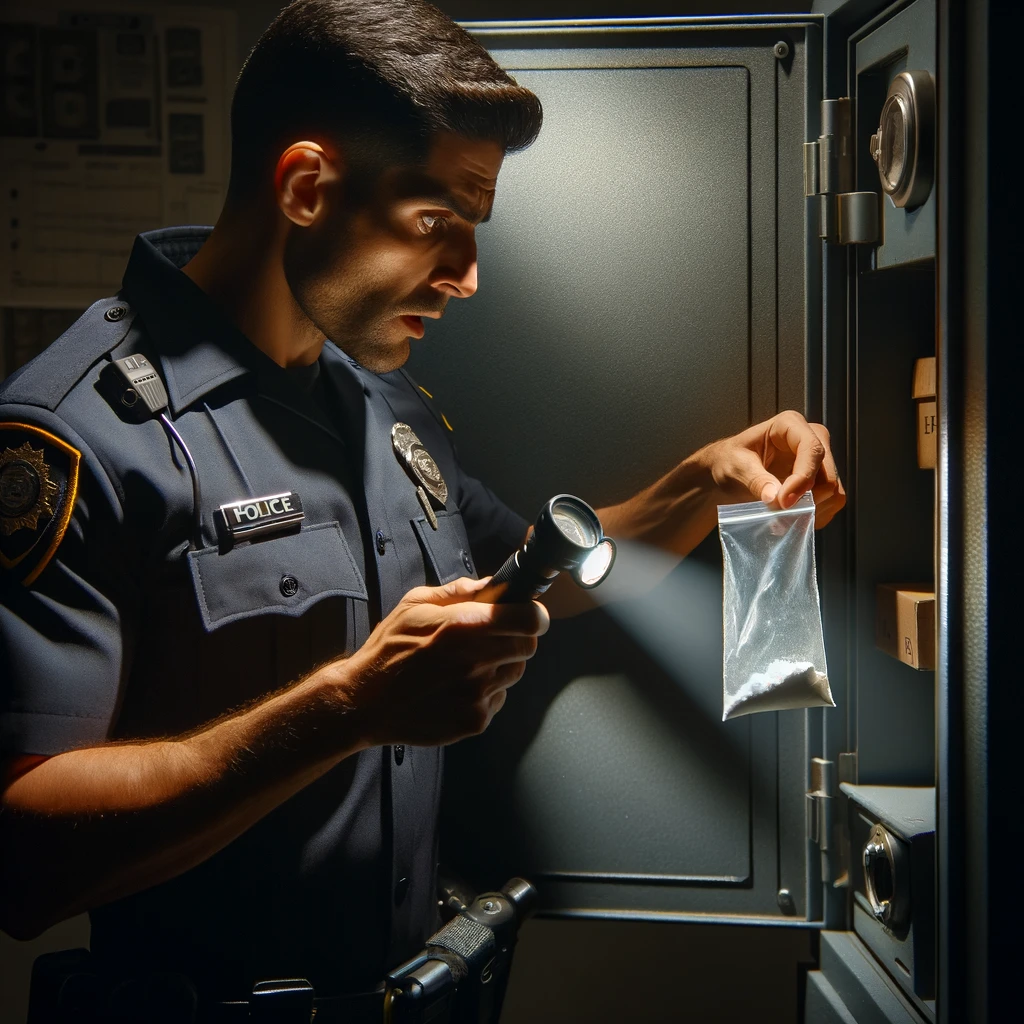Table of Contents
Facing charges of a second degree controlled substance crime in Minnesota can be overwhelming and deeply concerning. Whether you’re a resident of Duluth, Bemidji, Hibbing, or anywhere else in the state, understanding the intricacies of the law and your potential legal options is crucial. This article delves into the specifics of Minnesota Statute 152.022, outlining the various forms of second degree controlled substance crimes, associated penalties, and the importance of seeking legal representation from an experienced Minnesota criminal defense attorney.

The Law on Second Degree Drug Cases in Minnesota
Facing charges for a second degree controlled substance crime in Minnesota is a formidable ordeal. The consequences can be life-altering, making it crucial to understand the intricacies of the law and your legal options. This article delves deeper into the specifics of Minnesota Statute 152.022, dissecting the language, definitions, and potential penalties to equip you with the knowledge necessary to navigate this challenging situation.
What the Statute Says
Full Language: Minnesota Controlled Substance Crime in the Second Degree MINN. STAT. 150.022, a criminal statute that states the following:
152.022 CONTROLLED SUBSTANCE CRIME IN THE SECOND DEGREE.
Subdivision 1. Sale crimes.
A person is guilty of controlled substance crime in the second degree if:
(1) on one or more occasions within a 90-day period the person unlawfully sells one or more mixtures of a total weight of ten grams or more containing a narcotic drug other than heroin or fentanyl;
(2) on one or more occasions within a 90-day period the person unlawfully sells one or more mixtures of a total weight of three grams or more containing cocaine or methamphetamine and:
(i) the person or an accomplice possesses on their person or within immediate reach, or uses, whether by brandishing, displaying, threatening with, or otherwise employing, a firearm; or
(ii) the offense involves three aggravating factors;
(3) on one or more occasions within a 90-day period the person unlawfully sells one or more mixtures of a total weight of three grams or more, or 12 dosage units or more, containing heroin or fentanyl;
(4) on one or more occasions within a 90-day period the person unlawfully sells one or more mixtures of a total weight of ten grams or more containing amphetamine, phencyclidine, or hallucinogen or, if the controlled substance is packaged in dosage units, equaling 50 or more dosage units;
(5) the person unlawfully sells any amount of a Schedule I or II narcotic drug to a person under the age of 18, or conspires with or employs a person under the age of 18 to unlawfully sell the substance; or
(6) the person unlawfully sells any of the following in a school zone, a park zone, a public housing zone, or a drug treatment facility:
(i) any amount of a Schedule I or II narcotic drug, lysergic acid diethylamide (LSD), 3,4-methylenedioxy amphetamine, or 3,4-methylenedioxymethamphetamine; or
(ii) one or more mixtures containing methamphetamine or amphetamine.
Subd. 2. Possession crimes.
(a) A person is guilty of controlled substance crime in the second degree if:
(1) the person unlawfully possesses one or more mixtures of a total weight of 25 grams or more containing cocaine or methamphetamine;
(2) the person unlawfully possesses one or more mixtures of a total weight of ten grams or more containing cocaine or methamphetamine and:
(i) the person or an accomplice possesses on their person or within immediate reach, or uses, whether by brandishing, displaying, threatening with, or otherwise employing, a firearm; or
(ii) the offense involves three aggravating factors;
(3) the person unlawfully possesses one or more mixtures of a total weight of six grams or more, or 50 dosage units or more, containing heroin or fentanyl;
(4) the person unlawfully possesses one or more mixtures of a total weight of 50 grams or more containing a narcotic drug other than cocaine, heroin, fentanyl, or methamphetamine;
(5) the person unlawfully possesses one or more mixtures of a total weight of 50 grams or more containing amphetamine, phencyclidine, or hallucinogen or, if the controlled substance is packaged in dosage units, equaling 100 or more dosage units; or
(6) the person unlawfully possesses:
(i) 25 kilograms or more of cannabis flower;
(ii) five kilograms or more of cannabis concentrate; or
(iii) edible cannabis products, lower-potency hemp edibles, hemp-derived consumer products, or any combination of those infused with more than 500 grams of tetrahydrocannabinols.
(b) For the purposes of this subdivision, the weight of fluid used in a water pipe may not be considered in measuring the weight of a mixture except in cases where the mixture contains four or more fluid ounces of fluid.
Subd. 3. Penalty.
(a) A person convicted under subdivision 1 or 2 may be sentenced to imprisonment for not more than 25 years or to payment of a fine of not more than $500,000, or both.
(b) If the conviction is a subsequent controlled substance conviction, a person convicted under subdivision 1 or 2 shall be committed to the commissioner of corrections for not less than three years nor more than 40 years and, in addition, may be sentenced to payment of a fine of not more than $500,000.
(c) In a prosecution under subdivision 1 involving sales by the same person in two or more counties within a 90-day period, the person may be prosecuted for all of the sales in any county in which one of the sales occurred.
Unpacking the Statute
Statute 152.022 divides second degree controlled substance crimes into two main categories: sale crimes and possession crimes. Each category encompasses distinct actions and substances, with unique weight thresholds and aggravating factors influencing the severity of the offense and potential consequences.
Sale Crimes: MN Second Degree Drug Cases
- Narcotics: Unlawfully selling specific quantities of various narcotics, including cocaine, methamphetamine, heroin, and fentanyl, within a 90-day period constitutes a second degree crime. The weight thresholds vary depending on the specific narcotic:
- 10 grams or more for a mixture containing a narcotic drug other than heroin or fentanyl.
- 3 grams or more for a mixture containing cocaine or methamphetamine, with additional factors like firearm possession or three or more aggravating circumstances further escalating the offense’s severity.
- 3 grams or more, or 12 dosage units or more for a mixture containing heroin or fentanyl.
- Amphetamines, Phencyclidine, and Hallucinogens: Similar to narcotics, selling designated amounts of these substances within a 90-day period falls under this category:
- 10 grams or more for a mixture containing any of these substances, or 50 or more dosage units if packaged in dosage units.
- Minors and Sensitive Zones: Selling any Schedule I or II narcotic drug to someone under 18 or involving a minor in such sales, or selling specific controlled substances within designated areas like school zones, park zones,public housing zones, or drug treatment facilities, are both considered serious offenses under this statute.
Possession Crimes: MN Second Degree Drug Cases
- Narcotics: Unlawful possession of specific quantities of cocaine, methamphetamine, heroin, fentanyl, and other narcotics constitutes a second degree crime. Similar to sale crimes, weight thresholds and aggravating factors play a role in determining the offense’s severity:
- 25 grams or more for a mixture containing cocaine or methamphetamine.
- 10 grams or more for a mixture containing cocaine or methamphetamine, with additional factors like firearm possession or three or more aggravating circumstances further escalating the offense’s severity.
- 6 grams or more, or 50 dosage units or more for a mixture containing heroin or fentanyl.
- 50 grams or more for a mixture containing a narcotic drug other than cocaine, heroin, fentanyl, or methamphetamine.
- Amphetamines, Phencyclidine, and Hallucinogens: Possessing designated amounts of these substances within the prescribed timeframe falls under this category:
- 50 grams or more for a mixture containing any of these substances, or 100 or more dosage units if packaged in dosage units.
- Cannabis: Unlawful possession of significant amounts of cannabis flower, concentrate, or infused edibles exceeding specific thresholds falls within the purview of second degree controlled substance crimes:
- 25 kilograms or more of cannabis flower.
- 5 kilograms or more of cannabis concentrate.
- Edible cannabis products, lower-potency hemp edibles, hemp-derived consumer products, or any combination of those infused with more than 500 grams of tetrahydrocannabinols.
Understanding the Definitions
The statute employs specific terminology that necessitates clear understanding:
- Mixture: This refers to a combination of a controlled substance with another substance, including diluents or adulterants.
- Schedule I and II Narcotics: These are classified as having a high potential for abuse and no currently accepted medical use in treatment in the United States.
- Dosage Unit: This refers to a single measurement or form of a controlled substance, such as a tablet, capsule,or vial.
- Aggravating Factors: These are specific circumstances that can increase the severity of the offense, such as selling near a school or involving a minor.
Navigating the Penalties
Conviction for a second degree controlled substance crime carries serious consequences, including:
- Imprisonment:
- Up to 25 years for a first offense.
- Mandatory minimum of 3 years to 40 years for subsequent offenses.
- Fines: Up to $500,000.

Beat Your Case in Duluth, MN: Strong Defenses Against Second Degree Controlled Substance Charges in Minnesota
Navigating the labyrinthine legal landscape of Minnesota’s second degree controlled substance crime charges can be a daunting task. The potential consequences are weighty, but amidst the uncertainty, you hold the power to fight back. This section delves into a multifaceted arsenal of defenses you can potentially wield alongside a skilled Duluth criminal defense attorney to fortify your case and potentially secure a favorable outcome.
Unraveling the Threads of Knowledge and Intent
- Mistaken Identity: Proving you weren’t the perpetrator is a cornerstone defense. Witness misidentification is surprisingly common, and meticulous examination of witness statements, photo lineups, and potential alibi evidence can reveal discrepancies and cast doubt on their accuracy.
- Unknowing Possession: Demonstrating genuine and reasonable ignorance of the substance’s illegal nature can be immensely effective. This defense requires detailed exploration of your knowledge and intent at the time of possession, and meticulous gathering of evidence to solidify your claim.
- Entrapment: If law enforcement lured you into committing the crime through manipulation or undue pressure,you may have a strong entrapment defense. Proving this requires meticulous analysis of the police conduct and demonstration of your lack of pre-existing criminal intent.
Challenging the Procedural Fabric
- Illegal Search and Seizure: Evidence obtained through unlawful police actions such as warrantless searches or improper detentions is inadmissible in court. If your attorney can successfully suppress such evidence, the prosecution’s case may crumble.
- Chain of Custody Errors: The journey of evidence from collection to courtroom presentation holds significance.If there are gaps or inconsistencies in the chain of custody, the evidence’s reliability can be challenged,potentially weakening the prosecution’s case.
- Laboratory Errors: Faulty laboratory analysis or mishandling of evidence can compromise its accuracy. By scrutinizing laboratory procedures and potentially requesting independent testing, your attorney can potentially cast doubt on the prosecution’s claims.
Invoking the Shield of Constitutional Rights
- Self-Incrimination: You have the fundamental right to remain silent and not incriminate yourself. If your statements or evidence were obtained through coercion or threats, your attorney can fight to suppress them,safeguarding your constitutional rights.
- Right to a Fair Trial: Your Sixth Amendment right guarantees a fair and impartial trial. Denial of legal counsel,inadequate discovery, or suppression of crucial evidence can violate this right. Your attorney can raise these issues and seek dismissal of charges or a new trial if necessary.
Beyond the Usual Suspects: Unconventional Defenses
- Duress: If you were forced to commit the crime under threat of imminent harm, you may have a duress defense. This even applies in second degree drug cases in Minnesota. This defense requires demonstration of a credible threat and your lack of reasonable alternative options.
- Medical Necessity: In specific situations, possessing or using a controlled substance for legitimate medical purposes under a doctor’s supervision may be a defense. This complex defense requires careful legal maneuvering and expert testimony to achieve success.
Remember: Every case is unique, and the viability of these defenses will depend on the specific circumstances surrounding your situation. Consulting with an experienced Duluth criminal defense attorney is the most crucial step towards navigating the legal complexities and identifying the most appropriate defense strategy for your case. A skilled attorney can meticulously analyze the evidence, build a compelling defense, and fight for your rights every step of the way. Don’t face this challenge alone. Seek legal counsel and build a robust defense to potentially navigate towards a favorable outcome.
FAQs About Minnesota’s Second Degree Controlled Substance Crimes
Facing charges for a second degree controlled substance crime in Minnesota can be an overwhelming and confusing experience. To help you navigate this complex situation, we’ve compiled a list of frequently asked questions:
What are the different types of second degree controlled substance crimes in Minnesota?
The statute categorizes these crimes into two main categories: sale crimes and possession crimes. Each category encompasses various substances and weight thresholds, with additional factors influencing the offense’s severity and potential consequences.
What are the potential penalties for a second degree controlled substance crime?
Conviction can lead to serious consequences, including imprisonment for up to 25 years for a first offense and a mandatory minimum of 3 to 40 years for subsequent offenses, along with substantial fines of up to $500,000.
Can I defend myself against second degree controlled substance charges in Minnesota?
Absolutely! You have legal options and strong defenses available. With the help of an experienced Duluth criminal defense attorney, you can explore various possibilities such as mistaken identity, lack of knowledge, illegal search and seizure, entrapment, and violations of your constitutional rights.
What happens if I’m caught with a small amount of marijuana?
While still considered a second degree crime under certain circumstances, Minnesota has specific laws regarding cannabis possession. The penalties vary depending on the amount and other factors, and your attorney can guide you through the complexities of these laws.
Do I need a lawyer if I’m facing 2nd degree drug charges in Duluth, MN?
While you can technically represent yourself, navigating the intricate legal system and building a strong defense is immensely challenging without legal expertise. An experienced Duluth criminal defense attorney can protect your rights, analyze the evidence, investigate potential defenses, negotiate with prosecutors, and represent you in court, significantly increasing your chances of a favorable outcome.
Can I get treatment for substance abuse instead of facing penalties?
Minnesota recognizes the importance of rehabilitation and offers alternative sentencing options in specific cases. Your attorney can discuss the possibility of entering a court-ordered treatment program to potentially avoid some or all of the criminal penalties.
What happens if I have a prior criminal record?
Prior convictions for controlled substance offenses can lead to harsher penalties for subsequent offenses. However, your attorney can still explore all available defense options and work towards mitigating the potential consequences.
What is the first thing I should do if I’m charged with a second degree controlled substance crime?
The most important step is to remain calm and exercise your right to remain silent. Contact an experienced Duluth criminal defense attorney as soon as possible; especially one with experienced in second degree drug crimes. Your attorney can advise you on your rights, guide you through the legal process, and help you build a strong defense to protect your future.
Remember, you are not alone in this situation. Don’t hesitate to seek legal counsel and navigate this challenging time with an experienced legal professional by your side.

Northern Minnesota Second Degree Controlled Substance Lawyer: Duluth, Hibbing, Virginia, Princeton, East Grand Forks, and Statewide
Whether you reside in Duluth, Bemidji, Hibbing, Virginia, or anywhere else in Minnesota, facing charges of a second-degree controlled substance crime requires immediate action. Consulting with a skilled Duluth criminal defense attorney is the most crucial step you can take to protect your rights, navigate the legal complexities, and fight for the best possible outcome in your case. Remember, you don’t have to face this alone. An experienced legal professional can be your invaluable guide and advocate throughout this challenging time.
